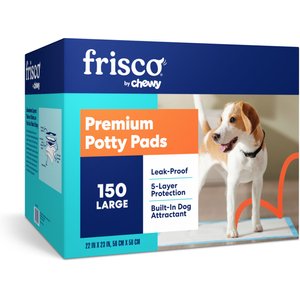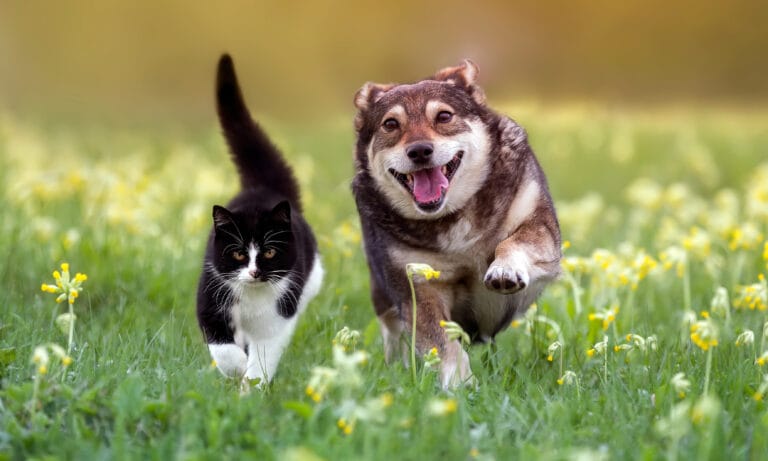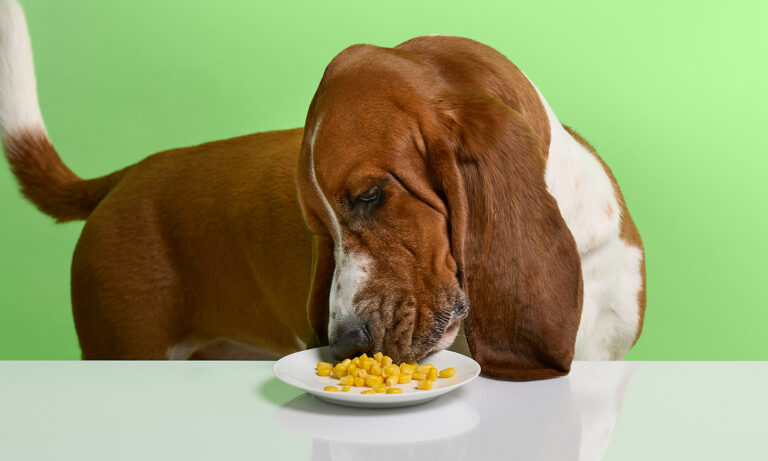While submissive urination is a normal part of canine communication, it can cause messes around your home. Dogs who submissively urinate in social settings often do it to show that they are not a threat. Not all dogs submissively urinate, but when they do, it can mean they’re feeling submissive or intimidated by a social situation. You can stop your pup from submissively urinating in your home by addressing the behavior, and making a few changes to your routine.
What Is Submissive Urination?
A dog peeing in the house could mean they’re struggling with submissive urination. Submissive urination is one of the many ways dogs use urination to communicate. It’s how dogs play submissive, or show they’re intimidated. Dogs will submissively urinate when greeting people or animals, during exciting events, while playing, or during physical contact. Your dog may urinate a little or a lot during submissive urination.
To tell if your dog is submissively urinating, rule out possible medical conditions first. If your dog is peeing indoors, or you see changes in the times they urinate, see a veterinarian to get a proper diagnosis. If your dog has a clean bill of health, check for signs of submissive body language when your pup urinates.
Submissive gestures include:
• Cowering
• Tucking the tail in
• Flattening the ears back
• Licking the lips
• Displaying a submissive grin
Submissive urination is most common in puppies, but can carry on into adulthood as well. Some breeds are more susceptible to submissive urination, including retrievers. Your dog may submissively urinate only when interacting with you, other dogs, new visitors or everyone. Excited urination is a different condition entirely. Unlike submissive urination, pups usually grow out of excited urination as they age.
Why Does Submissive Urination Happen?
According to Florida dog trainer Martin Deeley, “Submissive urination is a dog’s uncontrollable instinctive reaction to the presence of another dog or human that they feel is superior or is intimidating to them.” It’s not an action your pup can control. Unlike excited urination, submissive urination requires training to overcome. As a pet parent, you may be giving off incorrect signals. According to Deeley, “Incorrect signals can result in the dog offering submissive gestures such as urination. Fear, lack of confidence, sensitivity, confusion and nervousness can result in submissive urination.”
How to Prevent Submissive Urination in Your Pup
Inappropriate punishment can lead to submissive urination according to Deeley, who warns never to use punishment with your dog, and especially not to stop submissive urination. Punishing your pet for the condition will make it even worse. Instead, Deeley advises pet parents to “build confidence and redirect the dog’s mind to other actions than urinating when concerned or excited.”
Some ways to help correct submissive urination include:
• Don’t punish your pup for urinating.
• Don’t reassure your dog after they submissively urinate.
• Keep quiet and relaxed when it happens.
• Don’t rush your dog into new experiences or situations.
• Use a dog crate when you’re away.
• Take him out regularly so he doesn’t have bladder pressure.
• Don’t go straight to your pup when you get home; let her become calm.
• Build your pet’s confidence.
• Teach them how to show social appeasement in other ways.
While addressing submissive urination, try doggie diapers like Wee-Wee Disposable Doggie Diapers to prevent your pup from ruining your floors. The design is fur-safe, and has flex-fit stretch that stays snug without pulling at pet hair. To prevent future urination on the marked spot, use an odor remover like Nature’s Miracle Pet Stain and Odor Remover. Use the spray to remove odors to prevent your pup from coming back to the same location after submissive urination. Another way to prevent submissive urination is to use puppy training pads like Frisco’s Training Potty Pads. The pads are super absorbent and fast-drying. The pads are equipped with dog attractant that tells dogs where to go.
Submissive urination can make a mess out of your home, and might even anger you or your family. While your stress is understandable, it’s important to be patient and understanding of this common form of canine communication. Help your pup learn to manage their excitement or intimidation with positive, confidence-building behavioral techniques, and by making a few changes to your daily routine.
Share:












